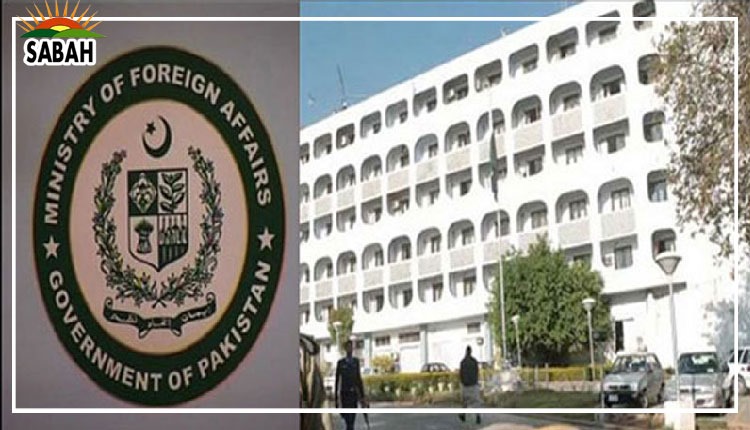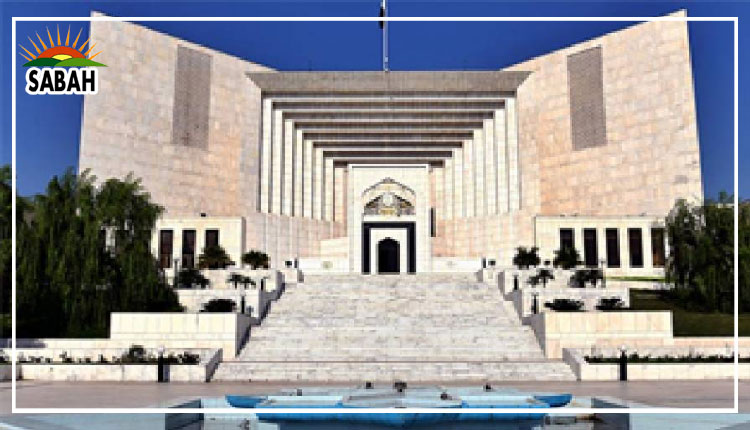Supreme Court Bar Association files for review of SC opinion on Article 63-A
ISLAMABAD, June 23 (SABAH): The Supreme Court Bar Association (SCBA) filed a petition in the apex court on Thursday for a review of the court’s May 17 decision on the interpretation of Article 63-A, which pertains to the status of defecting lawmakers.
On May 17, the Supreme Court’s larger bench gave a 3-2 spilt decision on a presidential reference seeking the court’s interpretation of Article 63-A, with a majority of the judges stating that the votes of lawmakers who defected from their parties would not be counted in the four instances outlined under the article.
These four instances are the election of the prime minister and chief minister; a vote of confidence or no-confidence; a Constitution amendment bill; and a money bill.
The SCBA filed a petition in the apex court for a review of the decision, contending that the SC’s interpretation, in paragraphs one to three of its order, was not in accordance with the letter and spirit, as well as the system of parliamentary democracy, established by the Constitution.
In the first two paragraphs of its order, the SC elaborated on whether Article 63-A had a limited or broad, purpose-oriented interpretation.
The SC said that the provision could not be “read and applied in isolation and in a manner as though it is aloof from, or indifferent to, whatever else is provided in the Constitution”.
The paragraphs described defections as a “cancer afflicting the body politic”.
“They cannot be countenanced,” the SC order said, adding that Article 63-A must be interpreted in a “purposive and robust manner.”
“The pith and substance of Article 63-A is to enforce the fundamental right of political parties under Article 17 […] It must therefore be interpreted and applied in a broad manner, consistent with fundamental rights,” the SC concluded.
In the third paragraph, the SC explained whether the votes of defecting lawmakers should be counted and given equal weightage.
The SC said the vote of any member of a parliamentary party in a house “that is cast contrary to any direction issued by the latter in terms of para (b) of clause (1) of Article 63-A cannot be counted and must be disregarded, and this is so regardless of whether the party head, subsequent to such vote, proceeds to take, or refrains from taking, action that would result in a declaration of defection.”
The SCBA said in its petition that in reaching the conclusion that the votes of defecting lawmakers were not to be counted, the “historical background and evolution of Article 63-A … had escaped the court’s attention”.
In this connection, the petition shared provisions of the Political Parties Act, which it said provided for the disqualification of lawmakers prior to the Constitution.
It also mentioned Article 96 of the Constitution, which the petition said provided for disregarding votes of defecting lawmakers for the first time. It was later replaced by Article 95, which omitted the clause for disregarding defecting votes.
Eventually, Article 63-A was inserted in the Constitution, the petition said, as it went on to elaborate on the provision.
“It is clear from the above, disregarding of defective votes was first incorporated into our constitutional framework at the time of commencement of the Constitution, in terms of the erstwhile Article 96,” the petition read.












